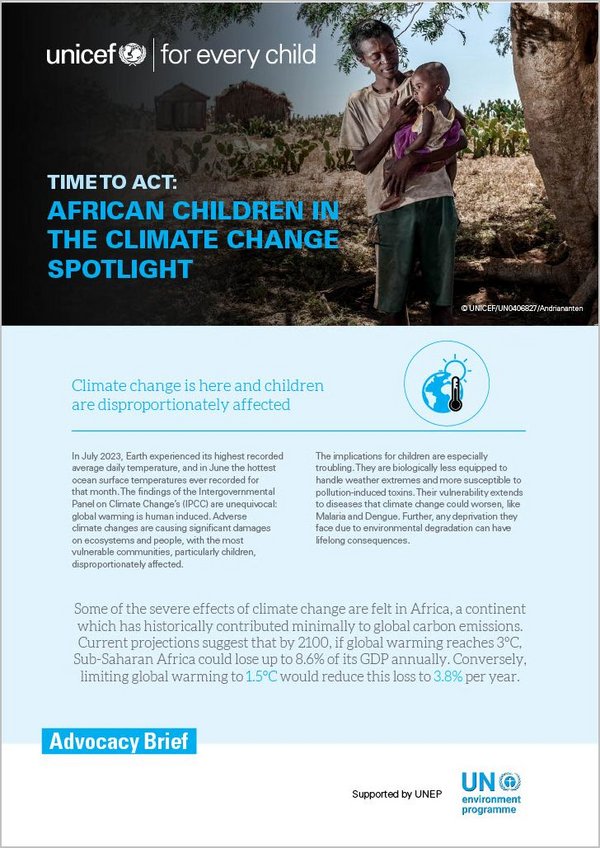- Share this article
- Subscribe to our newsletter
African children in the climate change spotlight
Children in 48 out of 49 African countries assessed are categorised as at high or extremely high risk of the impacts of climate change, the report Time to Act: African children in the climate change spotlight, published by the United Nations Children's Fund (UNICEF) in September 2023, states.
The analysis assesses countries based on children’s exposure to climate and environmental shocks, such as cyclones and heatwaves, as well as their vulnerability to those shocks, based on their access to essential services.
Children living in the Central African Republic, Chad, Nigeria, Guinea, Somalia and Guinea-Bissau are the most at risk.
In response to this increased risk to children, the report examines how multilateral climate funds (MCF) are targeting their resources. Just 2.4 per cent of this key global climate funding can be classified as supporting child-responsive activities, with an average value of a mere USD 71 million per year. If the target group is increased to include youth, the figure rises to just 6.6 per cent of total MCF spending.
Children are more vulnerable than adults to the effects of climate and environmental shocks and stresses. They are physically less able to withstand and survive hazards such as floods, droughts, storms and heatwaves, and are physiologically more vulnerable to toxic substances such as lead and other forms of pollution.
Despite substantial progress made by virtually all countries in the provision of essential services, persistent challenges contribute to an increased vulnerability for children, including limited access to good quality health and nutrition services, a lack of safe water, sanitation and hygiene, limited access to quality education and high levels of poverty.
Worryingly, the report reveals a strong correlation between countries with poor rankings on health, nutrition, WASH services and those ranking high or extremely high on the Children’s Climate Risk Index, highlighting how vulnerable these children are to the impacts of climate change.
At the same time, children and young people are instrumental to long-term change and sustainability. Their ideas, creativity and skills need to be taken seriously and become an integral part of the solutions, including policy and financing, as the time to act is now.
(UNICEF/ile)
Read more and download the report on the website





Add a comment
Be the First to Comment